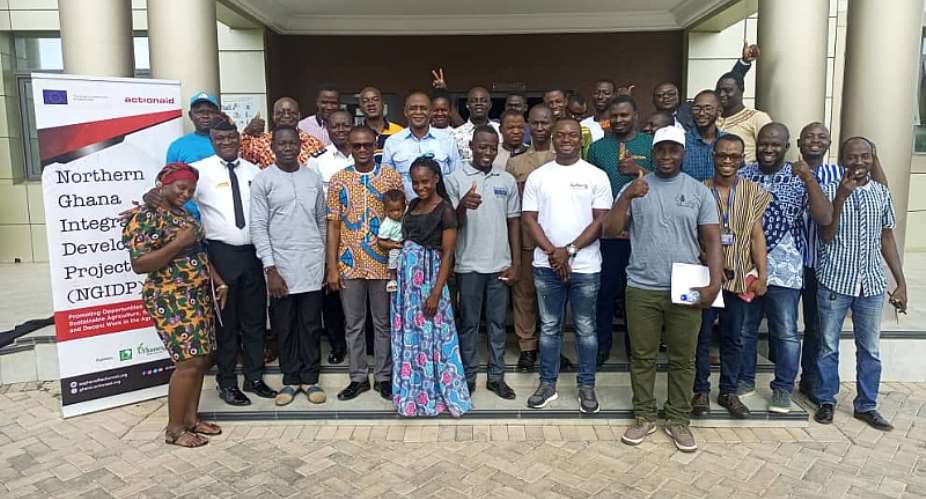Action Aid Ghana, TREE AID and decentralized government department, Agencies and Other Civil Society Organisations have resolved to intensify advocacy in the area of tree planting, organic composting and climate financing.
This move is part of major strategic interventions that would help address the growing impact of climate change in Northern Ghana (Upper East, Upper West, Northern, Savannah and North- East Regions).
The resolution was reached at the stakeholders' forum on the implementation of Ghana’s climate change adaptation policies.
Speaker after speaker acknowledged that the threats of climate change in Northern Ghana are glaring and for that matter, a concerted effort is required to help in addressing the implications on agriculture- food security and livelihood outcomes.
Stakeholders after vigorous brainstorming and deliberations with presentations resolved to intensify advocacy. The area of priority was; tree planting, organic composting, and climate financing.
They explained that tree planting if given the needed attention, would help re-forest Northern Ghana which would address the impact of desertification and increased temperature. They explained further that trees have economic and medicinal viability as well as serving as a windbreak. Considering the multi-benefits trees present, it is time government, donors, NGOs and the larger society give critical attention to tree planting initiatives.
On the need for organic composting, the stakeholders stressed that the inorganic fertilizers have contributed to destroying natural soil nutrients. They stressed that with the increasing cost of chemical fertilizers it is time for Ghana to focus on building farmer capacity to produce nutritious compost as well as invest in the industry to produce compost fertilizer.
Finally, on climate financing, stakeholders were of the view that resource commitment to undertake activities and implementation strategies would help in addressing climate change challenges at all levels since financial resources will help in implementation activities. The stakeholders also called on industrialised nations whose production and consumption models destroy the planet to contribute more towards the financing of adaptation interventions in developing countries including Ghana.
The project team gave presentations on tackling climate change at the Action Aid Ghana level; Ghana's Climate Change Adaptation Policy (2015- 2020) and Action Action Ghana, ongoing Northern Ghana Integrated Development Project (NGIDP) which has directly empowered 13,500 marginalized women smallholder farmers, young people and people with disabilities; strengthening the capacity of 300 women farmer groups; formed 15 farmer networks, and help trained 1,050 CSO and group leaders.
Collectively, the project has reached out to a total of 825,000 people directly or indirectly in the 15 districts of implementation, through the improved delivery of extension services, increased awareness of rights to land, social protection and decent work, and 385 young people have been trained in marketing and business planning, record keeping, etc.





 We’ll no longer tolerate your empty, unwarranted attacks – TUC blasts Prof Adei
We’ll no longer tolerate your empty, unwarranted attacks – TUC blasts Prof Adei
 Bawumia donates GHc200,000 to support Madina fire victims
Bawumia donates GHc200,000 to support Madina fire victims
 IMF to disburse US$360million third tranche to Ghana without creditors MoU
IMF to disburse US$360million third tranche to Ghana without creditors MoU
 Truck owner share insights into train collision incident
Truck owner share insights into train collision incident
 Paramount chief of Bassare Traditional Area passes on
Paramount chief of Bassare Traditional Area passes on
 Two teachers in court over alleged illegal possession of BECE papers
Two teachers in court over alleged illegal possession of BECE papers
 Sunyani: Victim allegedly shot by traditional warriors appeals for justice
Sunyani: Victim allegedly shot by traditional warriors appeals for justice
 Mahama vows to scrap teacher licensure exams, review Free SHS policy
Mahama vows to scrap teacher licensure exams, review Free SHS policy
 Government will replace burnt Madina shops with a new three-story, 120-store fac...
Government will replace burnt Madina shops with a new three-story, 120-store fac...
